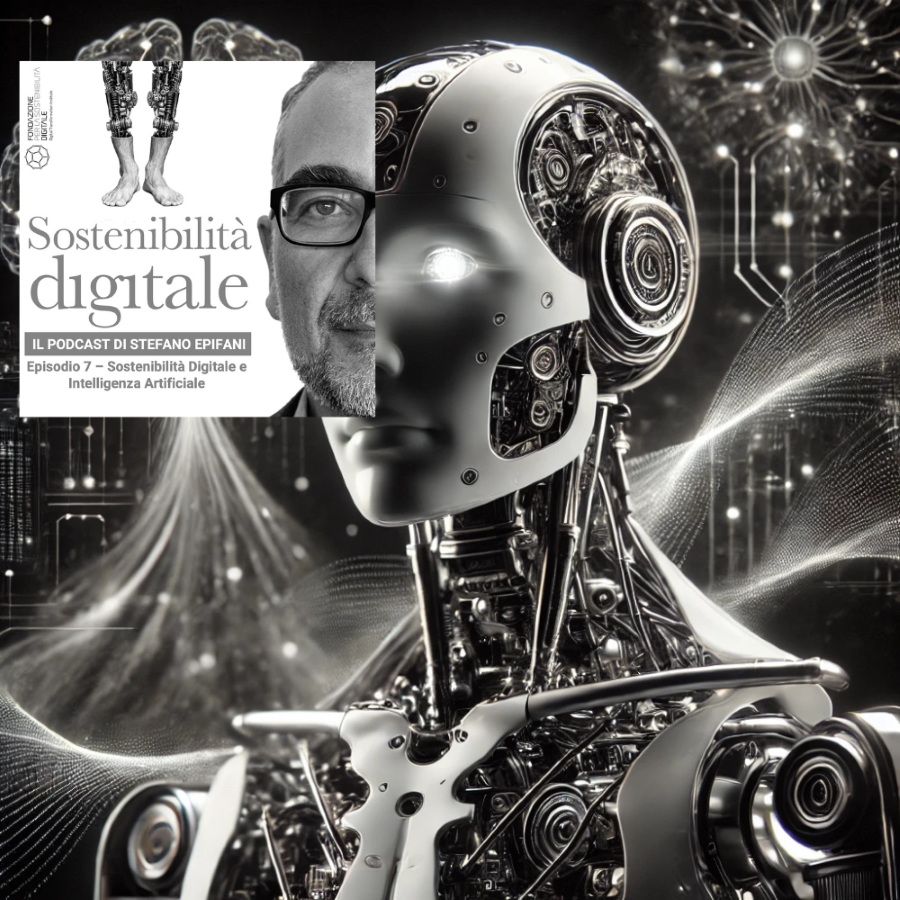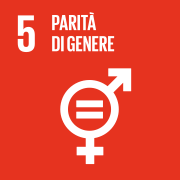
| Spreaker | Spotify | Apple Podcast | Amazon Music |
Artificial intelligence is destined to have an impact on our society comparable to that of the invention of fire, the internal combustion engine or atomic energy. A technology capable of radically transforming production processes, consumption patterns and the very way we work and interact. But is this transformation sustainable? Or does it risk generating more problems than it solves?
In the seventh episode of the Digital Sustainability podcast, we explore the opportunities and risks of artificial intelligence, analysing its impacts in three key dimensions: environmental, economic and social.
AI and environmental sustainability: a threat or an opportunity?
We know that training artificial intelligence models requires enormous amounts of energy. Some studies estimate that a single advanced model can generate between 300 and 600 tonnes of CO₂, which is comparable to the emissions of hundreds of cars in a year.
Yet, AI can also be an extraordinary tool for environmental sustainability. Intelligent systems can optimise energy consumption in buildings, reduce waste in production chains and improve the efficiency of transport, significantly reducing emissions. The question is therefore not whether or not AI is sustainable, but rather how we can make it so.
AI and economic sustainability: between efficiency and job losses
Every major technological revolution has redefined the world of work. It happened with the mechanisation of agriculture, with the robotization of industry, and now it is happening with AI. Many fear that automation will make entire job categories obsolete, but at the same time new job opportunities are emerging in areas that did not exist before.
The real issue is to govern the transition. AI must be a sustainable growth accelerator, capable of improving processes without generating new inequalities. Because while it makes companies more efficient, it also risks concentrating value in a few hands, increasing the gap between those who have access to technology and those who are excluded from it.
AI and social sustainability: progress for a few or for all?
Another key aspect is the social impact of artificial intelligence. Increasingly sophisticated algorithms make decisions that affect our daily lives: from allocating a mortgage to accessing a job, from managing healthcare resources to optimising urban traffic. But how transparent are these algorithms? How fair are they?
AI can contribute to a more inclusive society, for instance by improving accessibility to public services and supporting people with disabilities. But if left unregulated, it can also reinforce discriminatory bias, amplify inequalities and create new forms of exclusion.
It is not a question of technology, but of choices
Artificial intelligence is neither good nor bad. It is a powerful tool, the sustainability of which depends on how we decide to use it. If governed responsibly, it can become an extraordinary ally in tackling the great challenges of our age. If left unregulated, it risks being a destabilising factor.
In the seventh episode of Digital Sustainability we address these issues, trying to answer a key question: can we make AI an engine of sustainability?
🎧 Listen to the episode on major streaming platforms and continue to follow me on this journey into the heart of digital sustainability.
















